#the utopia of rules
Text
The ultimate, hidden truth of the world, is that it is something that we make, and could just as easily make differently.
The Utopia of Rules by David Graeber
15 notes
·
View notes
Text
Jolie Holland Interview: Refractive & Layered

Photo by Chris Doody
BY JORDAN MAINZER
When I called Jolie Holland last summer to talk about her then-upcoming new album Haunted Mountain (Cinquefoil), the LP had just arrived. Lying in her house was, in her words, "a mountain of Haunted Mountain." She had just finished boxing up a limited edition vinyl of her debut album Catalpa, sent to her supporters on Patreon, and a friend was coming over later in the day to help box up some more vinyl. The DIY and direct-to-consumer approach suits Holland and is certainly consistent with the themes of Haunted Mountain, an album that at times looks back at Holland's earliest years and contextualizes them within society's current fights against capitalism and the patriarchy.
On Haunted Mountain, you can hear battles in every aspect of Holland's experiments. Take the spacious electronica of "Feet On The Ground", its deep bass groove and panning, skittering beat tangling with Holland's soulful vocal and whistling, and buzz-saw guitars that cut in and out. On the surface, its lyrics recall protest, but to Holland, it's her first "anti-patriarchal dance" song, using bodily movement as a means to a more just end. Piano ballad "Orange Blossoms" lays side-by-side natural imagery and soundscapes to chide human effect on climate change while being careful not to delve into the world of self-righteousness or eco fascism. "Every single soul on this spinning globe / Is captive to this dick measuring contest," she quips with her trademark smoky, jazzy vocal. The galloping Buck Meek duet "Highway 72" references Holland's experience as a homeless teenager, piercing violin rubbing against gentle acoustic guitar, pedal steel, and Mellotron, the sonic manifestation of the daily struggle to live on the streets. The song uses the Nyabinghi rhythm, named after an anti-colonial Rwandan freedom fighter, Holland's subtle way of connecting the fights against colonialism and austerity.
It's no coincidence that Holland's first album in years came as her creative relationship with Meek flourished. She first met him at the Park Slope Food Coop, where they both worked. "The stairs to the office are lined with cheesy personal advertisements of people offering different services," Holland said of the Coop. "It feels like a college campus in the 90's." She decided to advertise songwriting coaching and music lessons, and Meek saw it and decided to get in touch, as he was a fan of her music. The rest, as they say, is history: Holland bared witness to Meek's burgeoning relationship with Adrianne Lenker, the formation of Big Thief, and both his and his brother Dylan's resulting success.
Yes, it was a coincidence that in 2023, both Holland and Meek released albums named Haunted Mountain. Holland co-wrote five of the songs on Meek's album, including its title track, a tribute to active volcano Mount Shasta. Guitarist Adam Brisbin, whom Holland introduced to Meek, plays on both records. Yet, that both albums deal with "reciprocity with nature"--a phrase Holland said that Meek used to contextualize his title track--and a sort of cosmic telepathy is a tribute to Holland and Meek's intertwined creative partnership. Right now, Holland is getting ready to tour the UK and EU in March and April. Read our conversation below, edited for length and clarity, about Haunted Mountain, working with Meek, nature, protest music, and conversational songwriting.

Photo by Chris Doody
Since I Left You: This cosmic collaboration between you and Buck is years in the making.
Jolie Holland: I was super charmed. We've known each other for over 10 years. I love writing songs with him. We've never done it in person--it was just literally texting and videos that we sent each other.
SILY: On "Mood Ring" from his album, he sings about telepathy. Even if he's singing about it from a romantic standpoint, that he titled the album the same thing is even further coincidence.
JH: He didn't know I was naming my next record Haunted Mountain. I always was. I never questioned it. It was this very simple vision for me. It's such a straightforward thing to name a record after a song and clearly, it's a very evocative title. Who knows what it means? I don't exactly know what it means. It has this nice refractive multi-faceted character. It's also a soft rhyme that has a nice rhythm to it. It was unquestioned to me that was gonna be the title.
There was a similar thing going on in Buck's circle. He kept coming up with different names for his record, but everyone in his circle was calling it Haunted Mountain. They assumed that was the name. He thought, "This isn't moving. Everybody is into this." He sent me this extremely thoughtful email that explained the process. He said, "Can I name my record after your song, [but] only if you're not going to name your record the same [thing]?" I said, "Yeah, well I am [naming it Haunted Mountain]." It only took us a few hours to come around to the fact that [the coincidence] was awesome. [laughs]
SILY: He sings about the idea of "reciprocity with nature" on his title track, a humbled relationship with it, and so do you, especially on "Orange Blossoms". Can you talk about your personal relationship with nature and singing about it?
JH: I said that phrase, "reciprocity with nature," and then I completely forgot having said it. Buck was texting me, "What was that you said? Something about something with nature? What was it?" We finally both remembered my having said it.
Are you an Indigenous person?
SILY: No.
JH: Me neither. My grandmother had a Choctaw last name but wasn't tribally affiliated. She had a family background of being Indigenous. They lived in New Orleans. She was Black and French, and the spelling of her last name is typically only Choctaw. When I was a kid, she told me in a very strong New Orleans accent, "I'm half Black, half French, and half Indian. That makes me Cajun." It's some ridiculous shit. Did you read Braiding Sweetgrass?
SILY: No, but I'm familiar with it.
JH: It's so beautiful. It's written by an Indigenous botanist named Robin Wall Kimmerer. The audio book is so...gorgeous, hearing the cadence and the weight of meaning in her voice. I haven't even finished the book. It's very, very long, 15 hours or more. I've just dipped my toes in. But she tells this incredible story of being a young botanist student. She had this hypothesis that traditional harvesting methods were positive for propagating certain plant species. Her professor, who was not Indigenous, was not into the idea of her doing this experiment. He said, "That's clearly wrong. How could human behavior be good for these plants?" She did the experiment and proved that traditional harvesting practices were positive overall for the plant. There are these intensely unanalyzed perspectives in European and settler culture that humans are a curse on nature. It has so many deep repercussions.
I reference that Malthusian perspective on the record. There's a voice of nature on "Orange Blossoms" that says, "We throw this party every year whether or not you motherfuckers are around." [The line is, "We throw this party every year / Whether or not you humans are here."] [laughs] It's talking about spring. But that's a real settler colonial European attitude, that humans are not part of nature. It's obviously ridiculous. It's just a philosophical conceit.
SILY: Your references to fascism in that song are interesting. It reminded me of the very online debate during COVID about people staying inside and "nature healing" being an ecologically fascist point of view.
JH: I heard the line, "Every superhero is a fascist," through leftist comedians, Francesca Fiorentini and Nato Green. I found many examples of that analysis. There's a great couple chapters in the book The Utopia of Rules by David Graeber where he gets into that idea. He was friends with a lot of my friends, but I never met him. He died of COVID complications. His biggest macro-cultural hit was the book Bullshit Jobs, and before he passed away, he wrote The Dawn of Everything, which is extremely wonderful. He's an anthropologist, and the person he cowrote the book with, David Wengrow, is an archaeologist. They did an enormous global analysis of the systems of democracy and social organization that are not authoritarian. It's brilliant. I think it's going to be really important tool moving forward. It resets the picture on a lot of things.

Photo by Chris Doody
SILY: Do your views on colonialism and nature jive with the anti-colonial bend of "Highway 72" as well?
JH: Why do you say it's anti-colonial?
SILY: I thought the juxtaposition of imagery in the line, "Great-horned owl slipping by the overpass / I feel like every year might be my last," was referential to systems of oppression constantly threatening to kill us. Is that song auto-biographical?
JH: [laughs] Yeah, I was a homeless teenager, and there's a lot of imagery of that time in my life in that song. My friend called it an anti-colonial hymn because the rhythm, Nyabinghi rhythm, is an anti-colonial rhythm. It's named after the Rwandan female military leader. I've loved that rhythm for a long time. There's this movie Land of Look Behind made by Alan Greenberg, who was a cinematographer who worked with Werner Herzog. He was friends with Bob Marley and happened to be visiting him when he died. There's all this beautiful footage of Marley's funeral and footage of backwoods Rastafarians hanging out and playing music. There's a band Keith Richards produced called Wingless Angels, and it's some of my favorite gospel music. It's so moving to me. It's been an important part of my musical vocabulary for 20 years. I forget how deeply embedded it is in my way of thinking about music. One of my best friends, one of the first people to hear the record, said something so beautiful about the rhythm: "It's slower than my grief." I said, "Wow, I don't know what you're talking about, but I love it!" [laughs] I think he was trying to say it helped him move through a certain healing process.
I looked up the beat because I wanted more concrete information about it. I forget anything I've learned about it because I've been into it for so long. Keith Richards said something so amazing about it: "It's purposefully slower than your heartbeat." [I thought,] "Is [my friend's] experience of the song related to Richards was saying about it?
SILY: It requires an active participation or listening.
JH: What do you mean by that?
SILY: When something is that slow, it can't be experienced passively. To stay engaged, you have to commit to it.
JH: That's interesting. It's like Bob Dylan getting really really quiet when the audience is loud.
SILY: Definitely similar. I was intrigued, though, when you were just talking about the relationships between humans and nature, because the song is about you living outside.
JH: More and more of us experience that as capitalism fucks us up. [The song isn't about homelessness, but] about [my] experience of homelessness. A lot of people look at me, clearly a fucking intellectual, and they think I went to college and had a family. I'm a white lady, so there are assumptions about my socioeconomic background. They're wrong! [laughs] I didn't want to be taken as a ghoul, bloodlessly discussing so-called social problems, looking at it from an external viewpoint.

SILY: "Feet On The Ground" seems to be describing the relationship between protesting and activism and our emotions.
JH: That's interesting. It's not. But I like your analysis.
SILY: The line I highlight is, "When you've taken all that you can handle / Every act of tenderness is a frightful gamble." What does that mean to you?
JH: I've been working on this project of trying to make anti-patriarchal dance music, and this is the first [song]. It's more about interpersonal relationships. It's very inside-out. It's from deep inside of relationships with men.
SILY: Which is a political statement in and of itself, inherently.
JH: Totally. I love that you saw it that way.
SILY: Have other people heard the song without knowing what it refers to and interpreted it other ways?
JH: My friends who have heard it have been overwhelmed by the production. I was really excited to talk with people about what it means, but everybody I've played it for, Buck included, have thought it's such a crazy soundscape.
SILY: Somewhat of an anomaly for you.
JH: It's my first dance track...It's listed as a different genre.
SILY: What's your relationship with The Painted Bird, and why did you frame "One Of You" around that book?
JH: Have you read that book?
SILY: No.
JH: Don't read it! It sucks! [laughs] It's so fucking intense.
SILY: It's one of those books where I haven't read it, but I'm very familiar with the discourse around it.
JH: I read The Painted Bird when I was 13. I didn't know what it was. How could I have? I don't even know where I found it. Probably in the library, or I borrowed it from one of my mom's friends. It's the story of a little blond-haired Jewish boy walking out of rural Poland in the aftermath of WWII, who encounters repeated creepy atrocities. There's a lot of sexual violence in the book, which I really wish I hadn't been exposed to as a child. The central image in the book is when the kid sees these country boys that capture a bird and paint it in these bright colors and release it back, and the flock kills it.
SILY: Because they think it's an intruder.
JH: It's this extremely visceral metaphor for genocide and the process of othering. "Feet On The Ground" and "One Of You" were kind of the same idea for a minute. It was really hard to write "Feet On The Ground" because in one sense, it's protest music, but I'm not interested in writing protest music that's accusatory. I want to write music that actually gives people an ability to consider things from a more basic level than just an oppositional state. That's always been my criticism of oppositional protest music. If it's just accusatory, the person being accused is not listening to the music. I totally value a lot of music that is accusatory and is that kind of typical punk rock anthem-type stuff, but I've [long] been interested in how to write in a different way. Daniel Johnston was a big influence in moving in that direction. He's somebody I think a lot of people wouldn't naturally identify with, somebody with mental illness. But he presents himself in a way where it's impossible not to identify with him.
"Feet On The Ground" is based to a degree on that William Onyeabor song "Better Change Your Mind". Another discursive protest song I found amazing is, "Can't Blame The Youth" by Peter Tosh.
SILY: Accusatory protest songs, in my experience, exist more as cathartic than wanting to make actual change. They serve that purpose, even if delivered to an echo chamber. However, I was listening to the latest Bully album, and the final song, a punk song called "All This Noise", is what you think of when someone says, "protest music," but the song before that, "Ms. America", is much quieter and has a basic premise of, "I want to have a kid, but I don't want to teach a kid how to fight." It turns protest feelings inward. I found it to be a more effective protest song due to it eliciting more empathy than what you would think of as typical protest music. Is empathy a part of what you're trying to achieve?
JH: What do you mean by empathy?
SILY: When you look inward a bit more in your protest songs, essentially, you're trying to uncover some more universal truth that other people can identify with, as a means of making change, rather than being accusatory.
JH: Do you mean empathy with the people you're trying to change?
SILY: With anyone listening.
JH: Probably. I'm definitely not interested in preaching at people, so it's about talking with the people listening and trying to be part of a bigger conversation with anybody who might be on board, as opposed to something intended to be strictly cathartic and outwardly directed.
SILY: "Me and My Dream" references some legendary songwriters. Can you talk about the weight that carries?
JH: I always loved the songs of Lou Reed's where he's referencing his friends. We don't even know who these people are. "'Margarita told Tom,' 'Kennedy says.'" Those aren't famous people. Those were his friends. Or maybe they were famous. It doesn't matter in the song. It's so beautiful. I remember when he talked about his orientation with writing lyrics, he wanted it to sound like the kind of things he wanted to say to his friends. An interpersonal conversation. I love lyrics like that. This was me approaching that idea. I'm always thinking about other artists' work and the ways it affects me and how I respond to it. Blind Willie Johnson, [Tom] Waits, and Richards are the namechecked artists, but I also reference Betty Davis' "I Will Take That Ride".
SILY: What's the story behind the cover art?
JH: I love this artist Jo Bird. She's a metal viola player I know from Houston. She has a band called Fiddle Witch. She moved from Houston to Galveston, which is the beach I grew up with as a child where I got sunburnt to fucking hell. Another one of my songs, "June", on Pint of Blood, talks about imagining mountains out of clouds. I grew up in the fucking swamp with no mountains, but the sky is incredible with cumulus clouds and rainbows and thunderstorms and tornadoes. I loved seeing her pictures all the time, how this goth photographer gets these scary pictures of the beach. [The cover] was a picture she took on her iPhone. We had to use some magic to get it big enough to use on the cover. We still chose to keep it kind of small so we didn't have to distort it to get a good image of it.
SILY: What instrument do you write most of your songs on?
JH: I write most of them in my head. I don't want the music to be limited by whatever I know or don't know instrument-wise.
SILY: Do you find adapting them to a live performance a totally different artistic endeavor than writing and recording them in the first place?
JH: No, it's all really creative and an opportunity to see different stuff in the music. We've been playing "Haunted Mountain" a lot of different ways. One way we've been doing it is synth, bass, viola. I love how it breaks down to just the elements. I love presenting songs in a lot of different settings.
SILY: Are you the type of songwriter who is always writing, or do you need to set aside time to sit down and write?
JH: I'm always collecting ideas, but I do need to sit down to make them come all the way through. I woke up and wrote some lines a couple mornings ago, which is great, because I'm so busy with everything else that it starts to feel weird to not have time to write.
SILY: Is there anything else upcoming for you?
JH: I put out Catalpa on vinyl in an extremely limited release that I offered to my Patrons. I'll do [a wider] re-release. It was never mastered at all, let alone for vinyl. Larry Crane, the editor of Tape Op, an awesome engineer, prepared the files. [The originals are like] a sketch on a cocktail napkin. They're made out of pure garbage. Larry's colleague Adam Gonsalves mastered them. They sound incredible. Adam mastered Haunted Mountain and Escondida for vinyl. I've been working with him for a while. My friend Jason Tavares, who runs a hi-fi Shop, listened to Catalpa on a hundred-thousand dollar system and said it sounds amazing.
I wish people had access to better systems. So many people don't even have a record player. I didn't even have a decent record player until I moved to L.A. 10 years ago. Before that, I was moving around so much, so it didn't make sense. Larry Crane played bass for Elliott Smith and did similar work for his shittier recordings, turning them into something that could take production. He's such a fabulous nerd and knows all the new things. He happened to hear those recordings of Elliott's while out and about, and said, "I would have done it differently now." He learned a lot of stuff before Catalpa, so I'm glad to hear Jason said it sounds good.
SILY: Did you start a Patreon over COVID?
JH: I did. I couldn't figure out how to access unemployment and was real fucked. I was about to go on tour in February 2020, so it was great to get into Patreon. I did something super gimmicky the other day that people fucking loved. I said, "I'm going to release a Tom Waits cover every week until I reach this many patrons." People responded to it so fast I had to keep moving that number until it made sense. It's been interesting engaging with people on that level. I'm glad there's platforms like that. Marc Ribot helped start Music Workers Alliance, and they did an analysis that streaming has taken 20 billion dollars a year out of artists' pockets, [so] it's great we have these direct support systems [like Patreon].
youtube
#interviews#jolie holland#buck meek#haunted mountain#chris doody#cinquefoil#patreon#park slope food coop#adrianne lenker#big thief#dylan meek#mount shasta#adam brisbin#braiding sweetgrass#robin wall kimmerer#francesca fiorentini#nato green#the utopia of rules#david graeber#bullshit jobs#the dawn of everything#david wengrow#land of look behind#alan greenberg#werner herzog#bob marley#keith richards#wingless angels#bob dylan#the painted bird
0 notes
Text
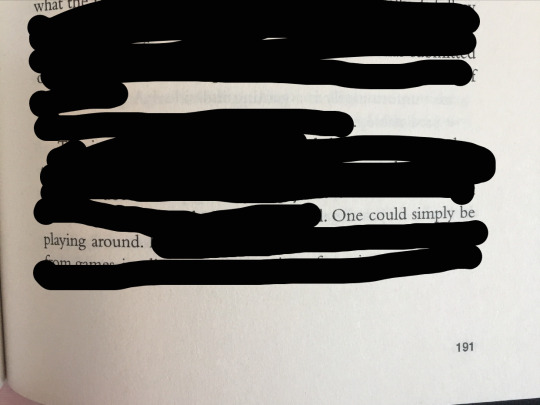
Fuck me… Graeber was so right about this one… wow…
1 note
·
View note
Text
“It’s as if we have finally achieved the ability to make [such] virtual realities materialize, and in so doing, to reduce our lives, too, to a kind of video game, as we negotiate the various mazeways of the new bureaucracies. Since, in such video games, nothing is actually produced, it just kind of springs into being, and we really do spend our lives earning points and dodging people carrying weapons.”
-David Graeber, The Utopia of Rules, p. 34
0 notes
Text
Poor people pay higher time tax
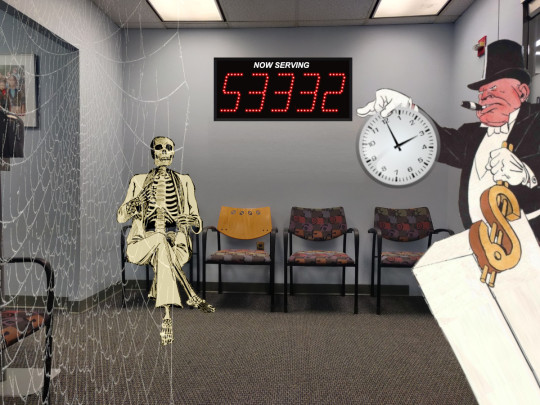
Doubtless you’ve heard that “we all get the same 24 hours in the day.” Of course it’s not true: rich people and poor people experience very different demands on their time. The richer you are, the more your time is your own — not only are many systems arranged with your convenience in mind, but you also command the social power to do something about systems that abuse your time.
If you’d like an essay-formatted version of this post to read or share, here’s a link to it on pluralistic.net, my surveillance-free, ad-free, tracker-free blog:
https://pluralistic.net/2023/02/10/my-time/#like-water-down-the-drain
For example: if you live in most American cities, public transit is slow, infrequent and overcrowded. Without a car, you lose hours every day to a commute spent standing on a lurching bus. And while a private car can substantially shorted that commute, people who can afford taxis or Ubers get even more time every day.
There’s a thick anthropological literature on the ways that cash-poverty translates into #TimePoverty. In David Graeber’s must-read essay “The Utopia of Rules,” he nails the way that capitalist societies generate Soviet-style bureaucracies, especially for poor people. Means-testing for benefits means that poor people spend endless hours filling in forms, waiting on hold, and lining up to see caseworkers to prove that they are among the “deserving poor” — not “mooches” who are defrauding the system:
https://memex.craphound.com/2015/02/02/david-graebers-the-utopia-of-rules-on-technology-stupidity-and-the-secret-joys-of-bureaucracy/
The social privilege gradient is also a time gradient: if you can afford a plane ticket, you can travel quickly across the country rather than losing days to the Greyhound or a road-trip. But if you’re even richer, you can pay for TSA Precheck and cut your airport security time from an hour to minutes. Go further up the privilege gradient and you’ll acquire airline status, shaving another hour off the check-in process.
This qualitative account of time poverty is well-developed, but it’s lacked a good, detailed quantitative counterpart, and our society often discounts qualitative work as mere anecdote and insists on having every story converted to numbers before it is taken seriously.
In “Examining inequality in the time cost of waiting,” published this month in Nature Human Behavior, public affairs researchers Steve Holt (SUNY) and Katie Vinopal (Ohio State) analyze data from the American Time Use Survey (AUTS) to produce a detailed, vibrant quantitative backstop to the qualitative narrative about time poverty:
https://www.nature.com/articles/s41562-023-01524-w
(The paper is paywalled, but the authors made a mostly final preprint available)
https://osf.io/preprints/socarxiv/jbk3x/download
The AUTS “collects retrospective time diary data from a nationally representative subsample drawn from respondents to the Census Bureau’s Community Population Survey (CPS) each year.” These time-diary entries are sliced up in 15-minute chunks.
Here’s what they found: first, there are categories of basic services where high-income people avoid waiting altogether, and where low-income people experience substantial waits. A person from a low-income household “an hour more waiting for the same set of services than people from high-income household.” That’s 73 hours/year.
Some of that gap (5%) is attributable to proximity. Richer people don’t have to go as far to access the same services as poorer people. Travel itself accounts for 2% more — poorer people wait longer for buses and have otherwise worse travel options.
A larger determinant of the gap (25%) is working flexibility. Poor people work jobs where they have less freedom to take time off to receive services, so they are forced to take appointments during peak hours.
Specific categories show more stark difference. If a poor person and a wealthy person go to the doctor’s on the same day, the poor person waits 46.28m to receive care, while the wealthy person waits 28.75m. The underlying dynamic here isn’t hard to understand. Medical practices that serve rich people have more staff.
The same dynamic plays out in grocery stores: poor people wait an average of 24m waiting every time they go shopping. For rich people, it’s 15m. Poor people don’t just wait in longer lines — they also have to wait for understaffed stores to unlock the cases that basic necessities are locked behind (poor people also travel longer to get to the grocery store — and they travel by slower means).
A member of a poor household with a chronic condition that requires two clinic visits per month loses an additional five hours/year to waiting rooms when compared to a wealthy person. As the authors point out, this also translates to delayed care, missed appointments, and exacerbated health conditions. Time poverty leads to health poverty.
All of this is worse for people of color: “Low-income White and Black Americans are both more likely to wait when seeking services than their wealthier same-race peer” but “wealthier White people face an average wait time of 28 minutes while wealthier Black people face a 54 minute average wait time…wealthier Black people do not receive the same time-saving attention from service providers that wealthier non-Black people receive” (there’s a smaller gap for Latino people, and no observed gap for Asian Americans.)
The gender gap is more complicated: “Low-income women are 3 percentage points more likely than low-income men and high-income women are 6 percentage points more likely than high-income men to use common services” — it gets even worse for low-income mothers, who take on the time-burdens associated with their kids’ need to access services.
Surprisingly, men actually end up waiting longer than women to access services: “low-income men spend about 6 more minutes than low-income women waiting for service…high-income men spend about 12 more minutes waiting for services than high-income women.”
Given the important role that scheduling flexibility plays in the time gap, the authors propose that interventions like subsidized day-care and afterschool programming could help parents access services at off-peak hours. They also echo Graeber’s call for reduced paperwork burdens for receiving benefits and accessing public services.
They recommend changes to labor law to protect the right of low-waged workers to receive services during off-peak hours, in the manner of their high-earning peers (they reference research that shows that this also improves worker productivity and is thus a benefit to employers as well as workers).
Finally, they come to the obvious point: making people less cash-poor will alleviate their time-poverty. Higher minimum wages, larger earned income tax credits, investments in low-income neighborhoods and better public transit will all give poor people more time and more money with which to command better services.
This week (Feb 13–17), I’ll be in Australia, touring my book Chokepoint Capitalism with my co-author, Rebecca Giblin. We’re doing a remote event for NZ on Feb 13. Next are Melbourne (Feb 14), Sydney (Feb 15) and Canberra (Feb 16/17). More tickets just released for Sydney!
[Image ID: A waiting room, draped with cobwebs. A skeleton sits in one of the chairs. A digital display board reads 'Now serving 53332.' An ogrish, top-hatted figure standing at a podium, yanking a dollar-sign shaped lever looms into the frame from the right. He holds a clock aloft disdainfully, pinched between the thumb and fingers of one white-gloved hand.]
#pluralistic#scholarship#auts#american time use survey#time use#jenny odell#race#graeber#david graeber#how to do nothing#utopia of rules#inequality#gender#time poverty
797 notes
·
View notes
Text
I've had more than one anarchist I associate with be surprised to learn I'm actually not an anarchist. But like. I'm a huge proponent of the Welfare State, and you kind of need a state for that
#welfare#welfare state#food stamps#Medicaid#medicare for all#universal healthcare#ubi#ssi#if a government isn't going to take care of its people then the government has no use to the people at all#so like I'm down for dismantling a system that only exists to rule and oppress and watch us die#and i don't mean 'fascists are okay if they make the trains run on time' type shit bc I'm staunchly antifascist#but like i do think a government can take care of even the most vulnerable of its populace if it really wants to. it just doesn't want to#undesirables who can't turn the cogs of capitalism are to be disposed of in most governments. esp the United States via#passive eugenics#anyway#revolution or not if the medical infrastructure goes down for any reason then me and a fuckton of other undesirables are dead#also this next statement is less towards anarchists specifically and more for like utopic commune people but anyway#if your utopia is based on 'work to live/earn your place' you are not a leftist you are a capitalist with a woke vocabulary#and i hate you
118 notes
·
View notes
Text
I think utopian literature (incl. solarpunk, hopeful future, &c.) actually makes me more angry than the dystopian variety.
I just keep thinking about how achievable it feels while I'm reading, then I have to snap back to reality. Reality where I have a degree and work 55 hours a week yet can't afford to fix my teeth or my car or live somewhere even remotely comfortable while the people that decide how much I get paid and how much a house costs and whether or not to invest in functional public transport or healthcare would rather donate a trillion dollars to fund a foreign genocide than fix anything anywhere. And I'm on the more fortunate side of the bell curve.
And we'll never get to the world I was just reading about in my lifetime, even if everyone starts working toward it right now. And it feels like there's nothing I can do to even nudge things in the right direction.
I'm already in the dystopia.
It's the dreaming of better that angers me.
#literature#dystopia#utopia#solarpunk#hopepunk#anti capitalism#socialism#get me out of here#did nobody ever teach any of these bastards the golden rule
39 notes
·
View notes
Text
the thing i miss about Old Tumblr is that it was way more chill. we laugh about the old school Fandom Cringe but at least people would earnestly actually talk about things they liked and have fun with them instead of screaming at people for liking Problematic Things or being from a place with Bad Politics (except usamericans of course)
#personal crap#and don't get me started on the cycle of 'people love thing/people become less in love with thing/ people start hating thing'#if you don’t like a piece of media just drop it from your life instead of obsessing over how much you hate it#i also really hate how condescending political culture has gotten on this site#tumblr leftists think if they ruled the world it'd be a utopia but honestly it'd just descend into a tankie hell in minutes#especially because on tumblr it's always no nuance november
18 notes
·
View notes
Note
So Gensokyo is New Pork City from Mother 3. Got it.
I mean, it's also not a dystopia. It's just a topia. It's better on net for the resident humans and youkai than their pre-existing lives (the humans because youkai can't attack them, the youkai because what else are you going to do) but it's not a utopia. It is paradise, though. It's Hourai, after all.
#it's a utopia for merry because she gets the best of all of it#but she's not ruling with an iron fist or anything like that. she's just living together with her beautiful world.
8 notes
·
View notes
Text
I love how even though tinkerbell kind of industrializes the fairy world, they only really use her inventions during times of emergency. the fairies don’t value productivity and profit above all else like we do. the most important thing to them is the beauty of the natural world, so while tinkerbell’s inventions are nice and helpful, they still prefer to slowly paint flowers each petal at a time.
#i want to say they kind of live in a socialist utopia but like.... they have a queen#they do have a one party government of ministers but they still have a queen#so it's a monarchy right?#but she doesn't really like... do? anything?#like she just oversees the other fairies#she doesn't. like. rule with an iron fist.#she's more like a mom than a queen#tinkerbell movies
32 notes
·
View notes
Text
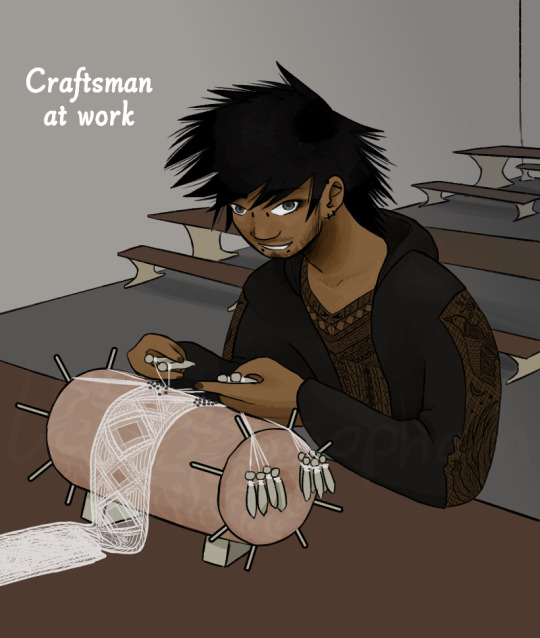
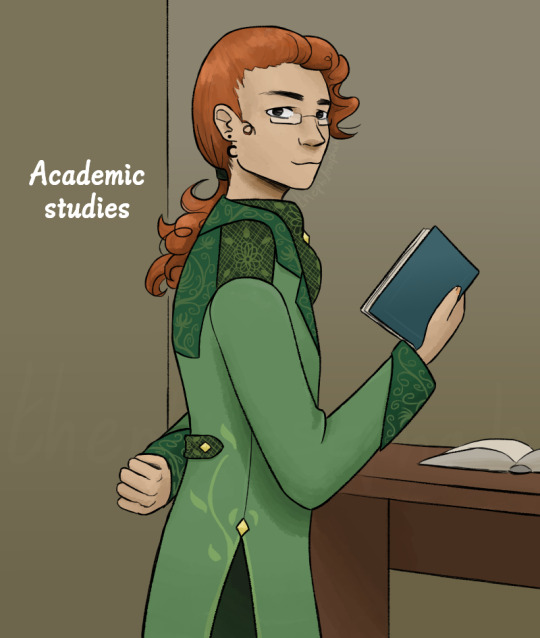
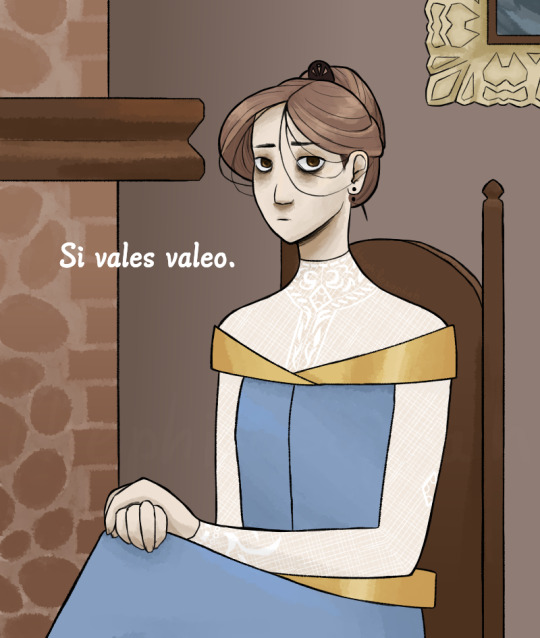
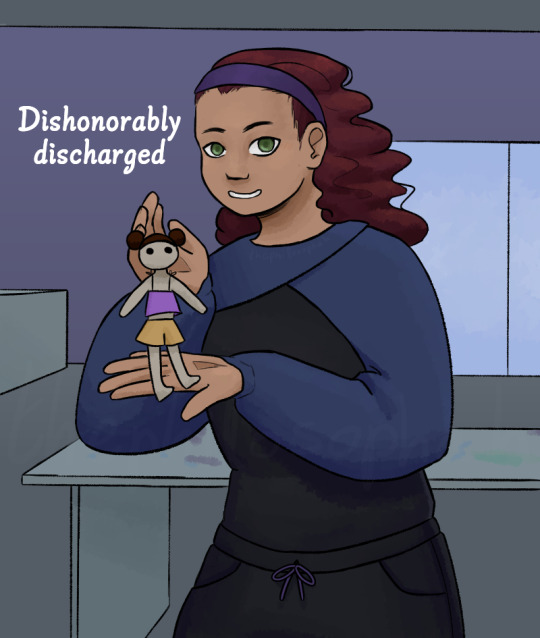

yeah i REFUSE to make another set of ocs and then just not have any drawings of them so i spent [normal amount of time] drawing up some portraits of them. here they all are! captioned by the thing that defines them the most <3
these guys, and their setting, and their basic plot, all came to me in a dream!
their story keeps hitting them with the one-two so none of them have a good time lmaooo
in order:
Ennet is a lace-maker who is so good at his craft that he's considered a genuine master at it by many, including his favorite customer Stef.
Stef is a richboy who basically can't learn enough about everything he wants to know soon enough. his current study is agricultural biology. his favorite craftsman is Ennet and his most beloved is Therse'a. it is generally assumed that Stef and Therse'a are to be married.
Therse'a is by many definitions the main character, but not the POV character. she's the princess whose family suffers a great unfortunate incident and we basically never see her at her baseline for the entire length of the story. for the first chapter she haunts the narrative and for the rest of it she is haunted.
Tenittu was the personal guard of Therse'a until her recent discharge, which greatly distressed both of them and anyone who knew them. guardwork was Tenittu's dream job and having lost it she has no idea what to do from now on. she considers herself to not have any other talents and she's right. hers is the POV we follow the most.
Teliv is a watchguard and often serves as Stef's or Therse'a's personal guard. he's very gifted in the field, with sharp eyes and a good memory for voices. we follow his POV quite a few times.
their setting is post-apocalyptic closed city. there are other cities, but leaving your own to travel to another is considered dangerous.
#oc#ocs#my art#effort#closed city#they have a naming rule that im gonna keep from spoiling for as long as i possibly can#i should mention somewhere that guardwatch is not a body guard kind of job#its more like surveillance. to be a broad witness#so the job is not about strength or fighting its about observation and memory#for every world i make i put a little utopia in it and my utopic choice for this city is that theres no violence#there are no weapons and martial arts are treated more like an art and less like a method of fight#there's also no camera surveillance hence the guard job#I LOVE THEM
3 notes
·
View notes
Text
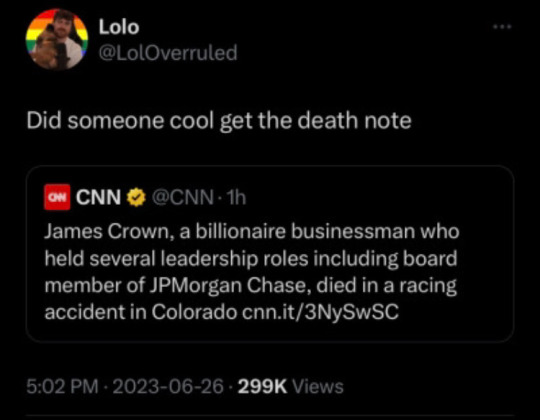
Until some raytheon profiteer dies i will assume that the light yuhGAHmee who got the death note really doesn’t like elites who want to do business w china specifically
#wait till u see what the death note is#who knows. u might have a weird dream about it ^^#a beautiful commie utopia pending. ruled by heroes for the common man like prigozhin#LOL
4 notes
·
View notes
Text
Once more with feeling: ***** *** ❤️
#it's official y'all#they won and yet they lost#they can't rule on their own#the opposition has the majority#i'm seriously over the moon#i know poland won't suddenly become a utopia#but it def won't get worse! it can only get better from here#marti talks#real life#polish things
5 notes
·
View notes
Text
Iowa's starvation strategy
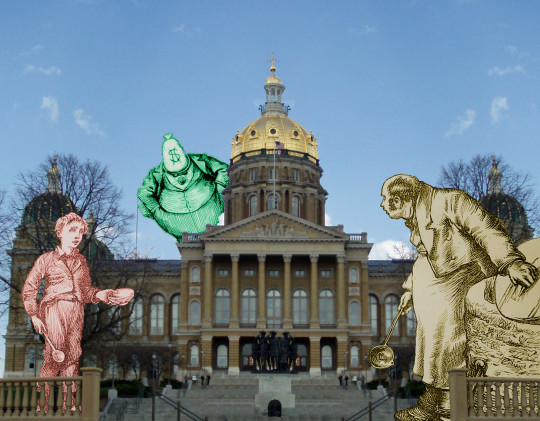
I don’t really buy that “the cruelty is the point.” I’m a materialist. Money talks, bullshit walks. When billionaires fund unimaginably cruel policies, I think the cruelty is a tactic, a way to get the turkeys to vote for Christmas. After all, policies that grow the fortune of the 1% at the expense of the rest of us have a natural 99% disapproval rating.
If you’d like an essay-formatted version of this post to read or share, here’s a link to it on pluralistic.net, my surveillance-free, ad-free, tracker-free blog:
https://pluralistic.net/2023/04/19/whats-wrong-with-iowa/#replicable-cruelty
So when some monstrous new law or policy comes down the pike, it’s best understood as a way of getting frightened, angry — and often hateful — people to vote for policies that will actively harm them, by claiming that they will harm others — brown and Black people, women, queers, and the “undeserving” poor.
Pro-oligarch policies don’t win democratic support — but policies that inflict harm a ginned-up group of enemies might. Oligarchs need frightened, hateful people to vote for policies that will secure and expand the power of the rich. Cruelty is the tactic. Power is the strategy. The point isn’t cruelty, it’s power:
https://pluralistic.net/2022/06/25/roe-v-wade-v-abortion/#no-i-in-uterus
But that doesn’t change the fact that the policies are cruel indeed. Take Iowa, whose billionaire-backed far-right legislature is on a tear, a killing spree that includes active collaboration with rapists, through a law that denies abortion care to survivors of rape and forces them to bear and care for their rapists’ babies:
https://www.nytimes.com/2023/03/16/us/politics/iowa-kamala-harris-abortion.html
The forced birth movement is part of the wider far-right tactic of standing up for imaginary children (e.g. “the unborn,” fictional victims of Hollywood pedo cabals), and utterly abandons real children: poor kids who can’t afford school lunches, kids in cages, kids victimized by youth pastors, kids forced into child labor, etc.
So Iowa isn’t just a forced birth state, it’s a state where children are now to be starved, literally. The state legislature has just authorized an $18m project to kick people off of SNAP (aka food stamps). 270,000 people in Iowa rely on SNAP: elderly people, disabled people, and parents who can’t feed their kids.
Writing in the Washington Post, Kyle Swenson profiles some of these Iowans, like an elderly woman who visited Lisa Spitler’s food pantry for help and said that state officials had told her that she was only eligible for $23/month in assistance:
https://www.washingtonpost.com/dc-md-va/2023/04/16/iowa-snap-restrictions-food-stamps/
That’s because Iowa governor KimReynolds signed a bill cutting the additional SNAP aid — federally funded, and free to the state taxpayers of Iowa — that had been made available during the lockdown. Since then, food pantries have been left to paper over the cracks in the system, as Iowans begin to starve.
Before the pandemic, Spitler’s food pantry saw 30 new families a month. Now it’s 100 — and growing. Many of these families have been kicked off of SNAP because they failed to complete useless and confusing paperwork, or did so but missed the short deadlines now imposed by the state. For example, people with permanent disabilities and elderly people who no longer work must continuously file new paperwork confirming that their income hasn’t changed. Their income never changes.
SNAP recipients often work, borrow from relations, and visit food pantries, and still can’t make ends meet, like Amy Cunningham, a 31 year old mother of four in Charlton. She works at a Subway, has tapped her relatives for all they can afford, and relies on her $594/month in SNAP to keep her kids from going hungry. She missed her notice of an annual review and was kicked off the program. Getting kicked off took an instant. Getting reinstated took a starving eternity.
Iowa has a budget surplus of $1.91B. This doesn’t stop ghouls like Iowa House speaker Pat Grassley (a born-rich nepobaby whose grandpa is Senator Chuck Grassley) from claiming that the cuts were a necessity: “[SNAP is] growing within the budget, and are putting pressure on us being able to fund other priorities.”
Grassley’s caucus passed legislation on Jan 30 to kick people off of SNAP if their combined assets, including their work vehicle, total to more than $15,000. SNAP recipients will be subject to invasive means-testing and verification, which will raise the cost of administering SNAP from $2.2m to $18m. Anyone who gets flagged by the system has 10 days to respond or they’ll be kicked off of SNAP.
The state GOP justifies this by claiming that SNAP has an “error rate” of 11.81%. But that “error rate” includes people who were kicked off SNAP erroneously, a circumstance that is much more common than fraud, which is almost nonexistent in SNAP programs. Iowa’s error rate is in line with the national average.
Iowa’s pro-starvation law was authored by a conservative dark-money “think tank” based in Florida: the Opportunity Solutions Project, the lobbying arm of Foundation For Government Accountability, run by Tarren Bragdon, a Maine politician with a knack for getting money from the Koch Network and the DeVos family for projects that punish, humiliate and kill marginalized people. The Iowa bill mirrors provisions passed in Kentucky, Kansas, Wisconsin and elsewhere — and goes beyond them.
The law was wildly unpopular, but it passed anyway. It’s part of the GOP’s push for massive increases in government spending and bureaucracy — but only when those increases go to punishing poor people, policing poor people, jailing poor people, and spying on poor people. It’s truly amazing that the “party of small government” would increase bureaucratic spending to administer SNAP by 800% — and do it with a straight face.
In his essay “The Utopia of Rules,” David Graeber (Rest in Power) described this pathology: just a couple decades ago, the right told us that our biggest threat was Soviet expansion, which would end the “American way of life” and replace it with a dismal world where you spent endless hours filling in pointless forms, endured hunger and substandard housing, and shopped at identical stores that all carried the same goods:
https://memex.craphound.com/2015/02/02/david-graebers-the-utopia-of-rules-on-technology-stupidity-and-the-secret-joys-of-bureaucracy/
A society that can’t feed, house and educate its residents is a failed state. America’s inability to do politics without giving corporations a fat and undeserved share is immiserating an ever-larger share of its people. Federally, SNAP is under huge stress, thanks to the “public-private partnership” at the root of a badly needed “digital overhaul” of the program.
Writing for The American Prospect, Luke Goldstein describes how the USDA changed SNAP rules to let people pay with SNAP for groceries ordered online, as a way to deal with the growing problem of food deserts in poor and rural communities:
https://prospect.org/health/2023-04-19-retail-surveils-food-stamp-users/
It’s a good idea — in theory. But it was sabotaged from the start: first, the proposed rule was altered to ban paying for delivery costs with SNAP, meaning that anyone who ordered food online would have to use scarce cash reserves to pay delivery fees. Then, the USDA declined to negotiate discounts on behalf of the 40 million SNAP users. Finally, the SNAP ecommerce rules don’t include any privacy protections, which will be a bonanza for shadowy data-brokers, who’ll mine SNAP recipients’ data to create marketing lists for scammers, predatory lenders, and other bottom-feeder:
https://www.democraticmedia.org/sites/default/files/field/public-files/2020/cdd_snap_report_ff.pdf
The GOP’s best weapon in this war is statistical illiteracy. While racist, sexist and queerphobic policies mean that marginalized people are more likely than white people to be poor, America’s large population of white people — including elderly white people who are the immovable core of the GOP base — means that policies that target poor people inevitably inflict vast harms on the GOP’s most devoted followers.
Getting these turkeys to vote for Christmas is a sound investment for the ultra-rich, who claim a larger share of the American pie every year. The rich may or may not be racist, or sexist, or queerphobic — some of them surely are — but the reason they pour money into campaigns to stoke divisions among working people isn’t because they get off on hatred. The hatred is a tactic. The cruelty is a tactic. The strategic goal is wealth and power.
Tomorrow (Apr 21), I’m speaking in Chicago at the Stigler Center’s Antitrust and Competition Conference. This weekend (Apr 22/23), I’m at the LA Times Festival of Books.
[Image ID: The Iowa state-house. On the right side of the steps is an engraved drawing of Oliver Twist, holding out his porridge bowl. On the left side is the cook, denying him an extra portion. Peeking out from behind the dome is a business-man in a suit with a dollar-sign-emblazoned money-bag for a head.]
Image:
Iqkotze (modified)
https://commons.wikimedia.org/wiki/File:Iowa_State_Capitol_April_2010.jpg
CC BY 3.0
https://creativecommons.org/licenses/by-sa/3.0/deed.en
#pluralistic#ecommerce#Foundation for Government Accountability#fga#iowa#florida#ebt#david graeber#utopia of rules#big government#usda#surveillance#cruelty#gop#devos#starvation#food stamps#snap#koch network#Tarren Bragdon#state policy network
573 notes
·
View notes
Text
just what is it.... that really matters...? when i die.... what metric will be used to measure the worth of my life...? is it enough.... just to love my friends.... and to love goku...? one day.... will my love of goku.... matter...? will it be what saves me...? billions of people across time.... are not remembered.... but is that okay...? were they useless...? or meaningless...? did it matter if they were happy or sad.... or if they were able to live the life they wanted to...? will building my minecraft world and drawing and making ocs and chewing into media and talking to friends and drinking bubble tea and eating udon with a soft boiled egg be enough.... even if i die young poor kissless and as a disappointment and failure in the eyes of my father who's life i have ruined...?
#clyde.txt#existential panic and ocd real but also i think the way the world is is so wrong i refuse to live in it abiding by it's rules praying every#day the straw on the camel's back breaks and i get the utopia and happiness i've always wanted and believed my life will one day be....#but i am privileged enough to be a neet at that's where this POV comes from and i never learned how to apply myself and learninf now is#hard and i'm a lazy baby who never wants to work ever unless it's One Thinf which would take me learning languages#which takes me applying myself. LOL#EVERY DAY I FIGURE IT OUT MORE I SWEAR I'LL FUNCTION IN THIS WORLD SOMEDAY#i was almost there too before Bad Thing happened to me which has now made me live my entire life in fear and trying to do#everything i can to not make anything else bad happen to me. LOL#but alas. excuses. it'll all come together someday
1 note
·
View note
